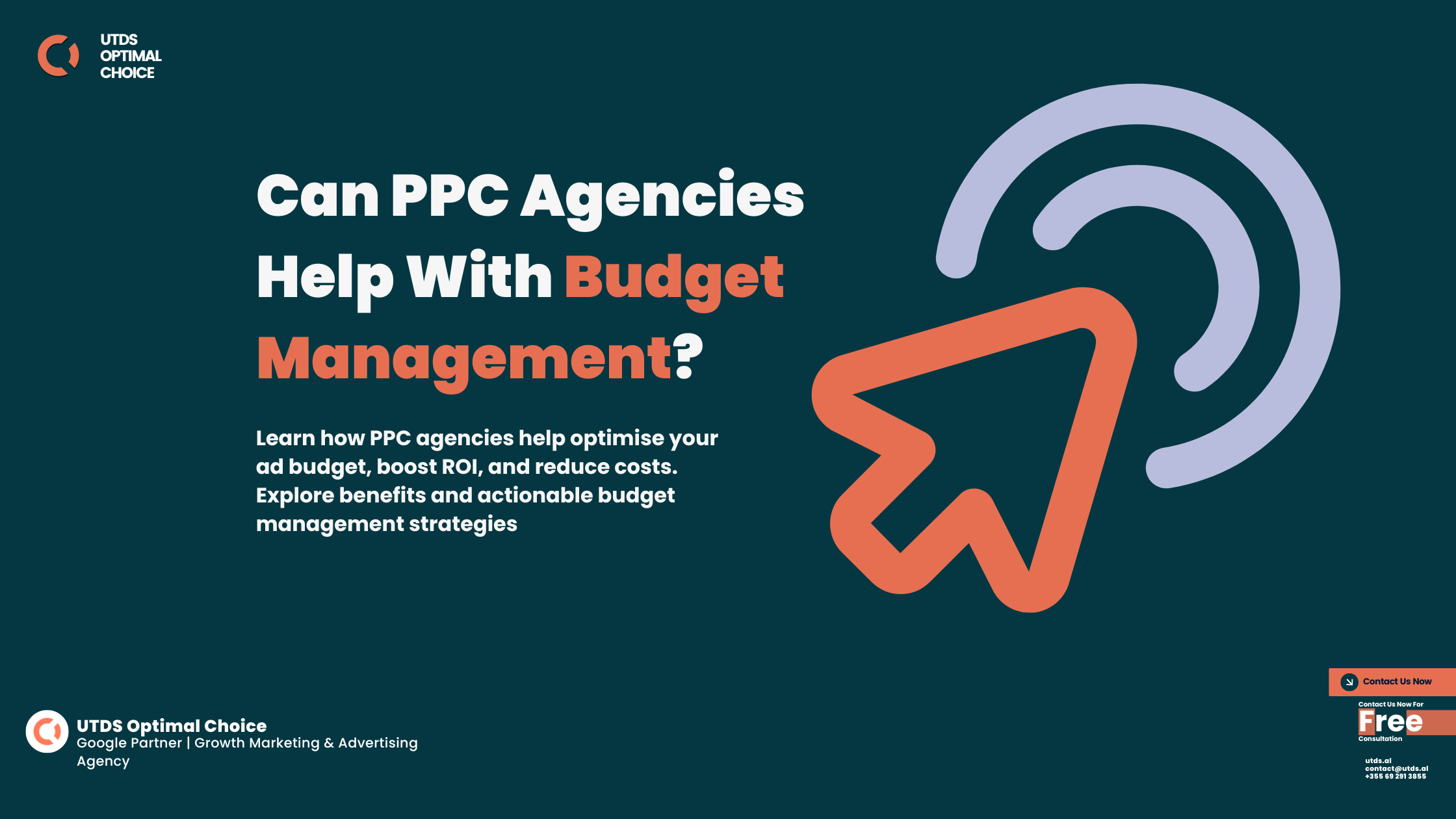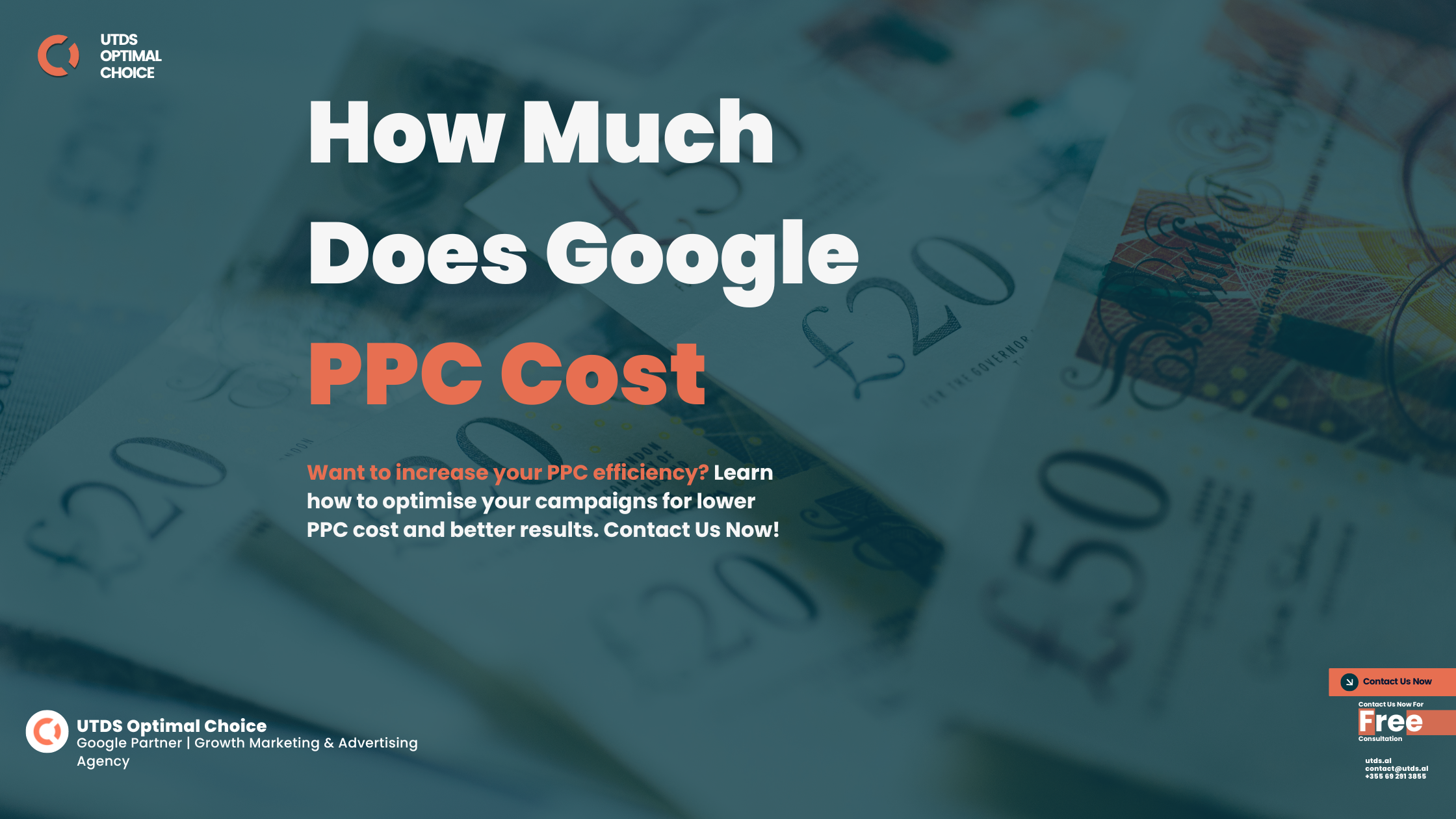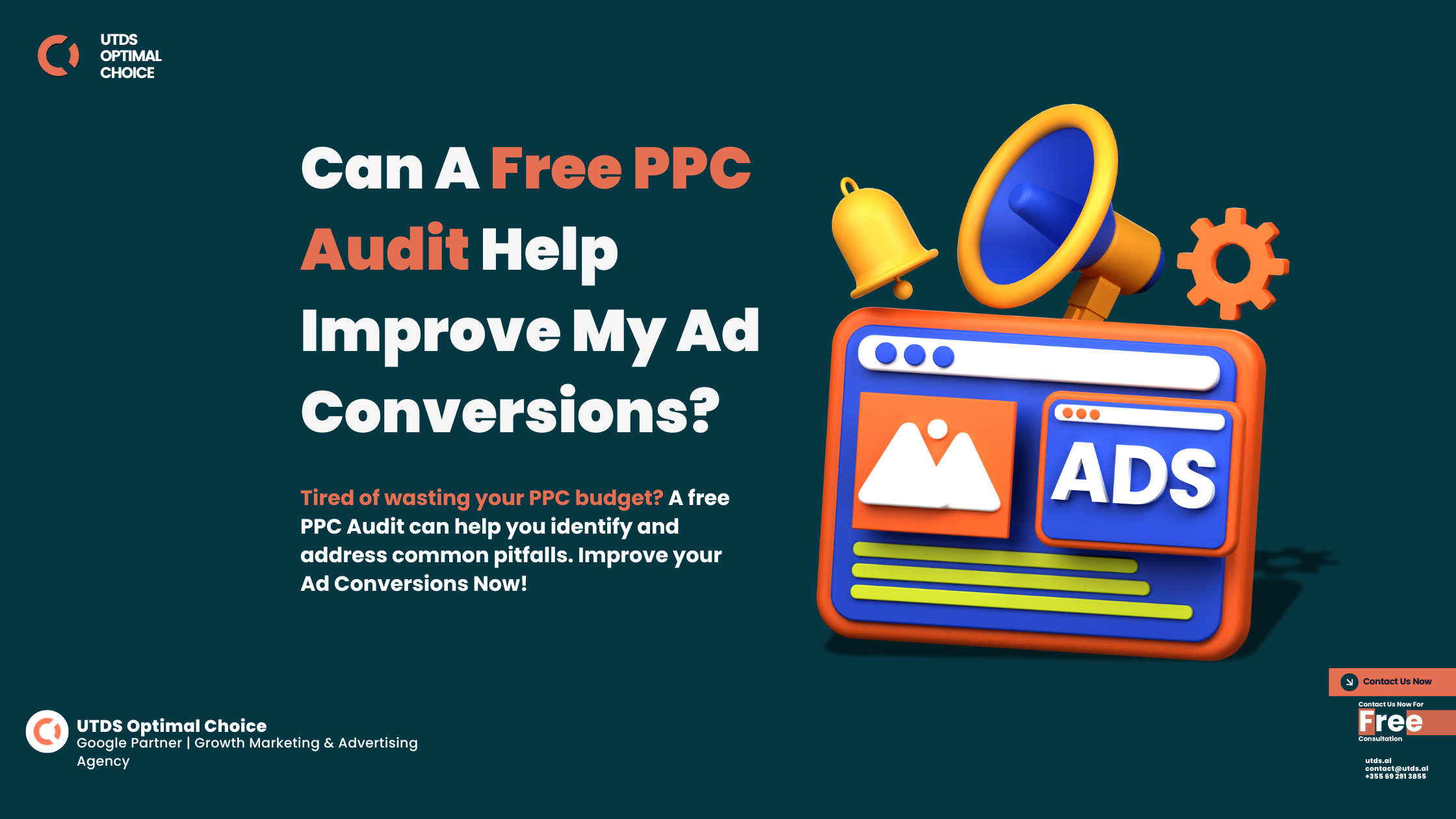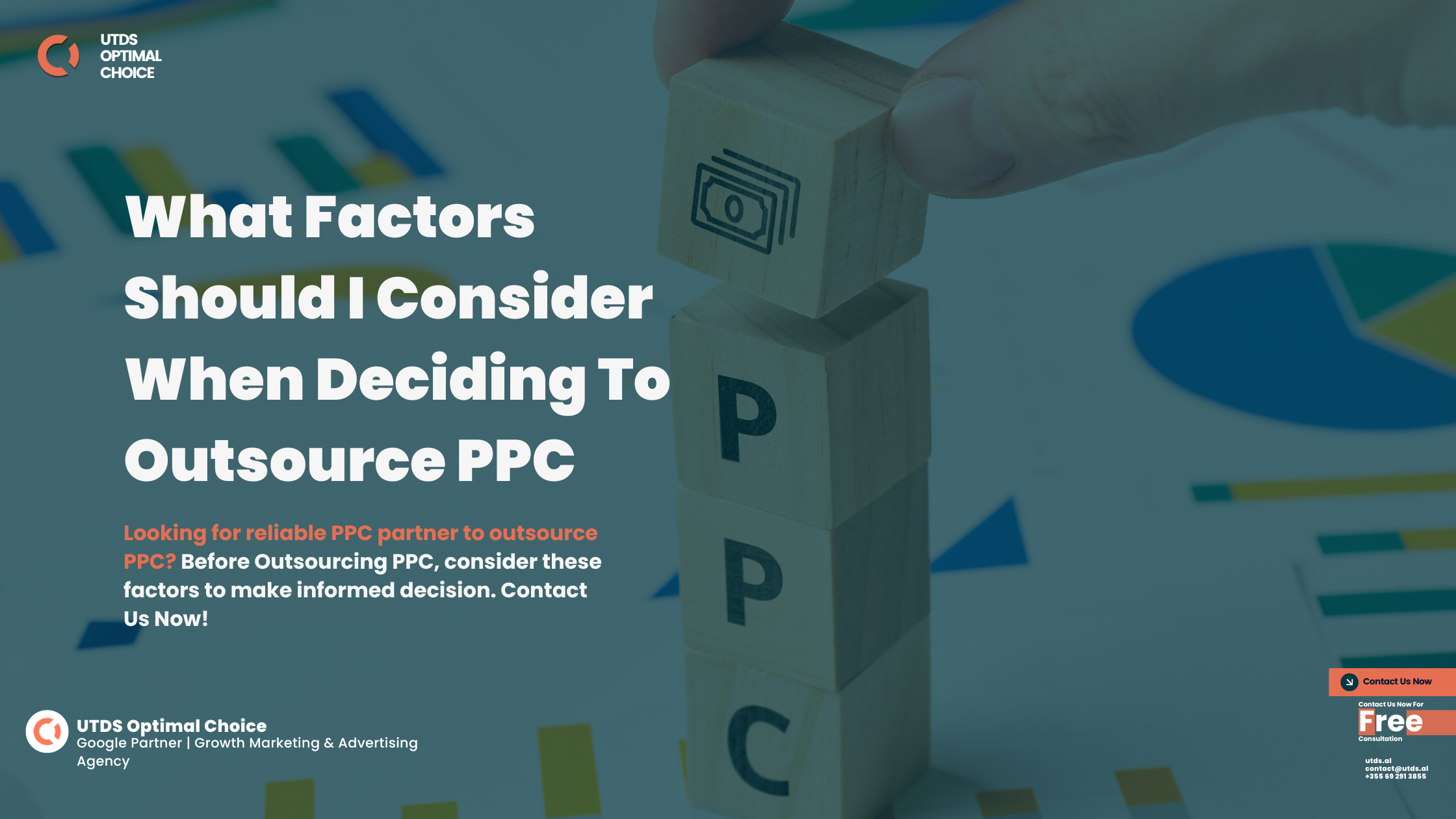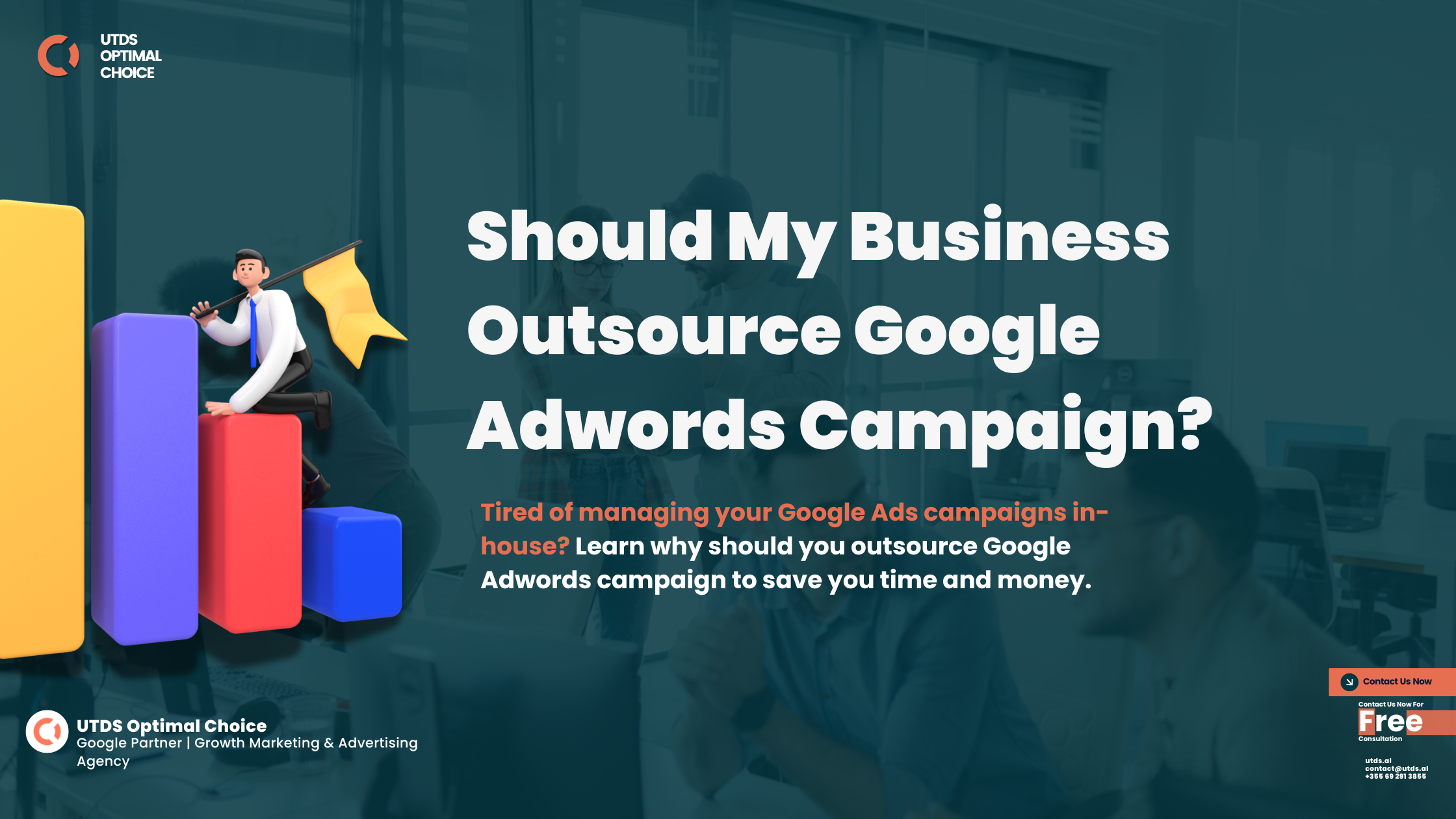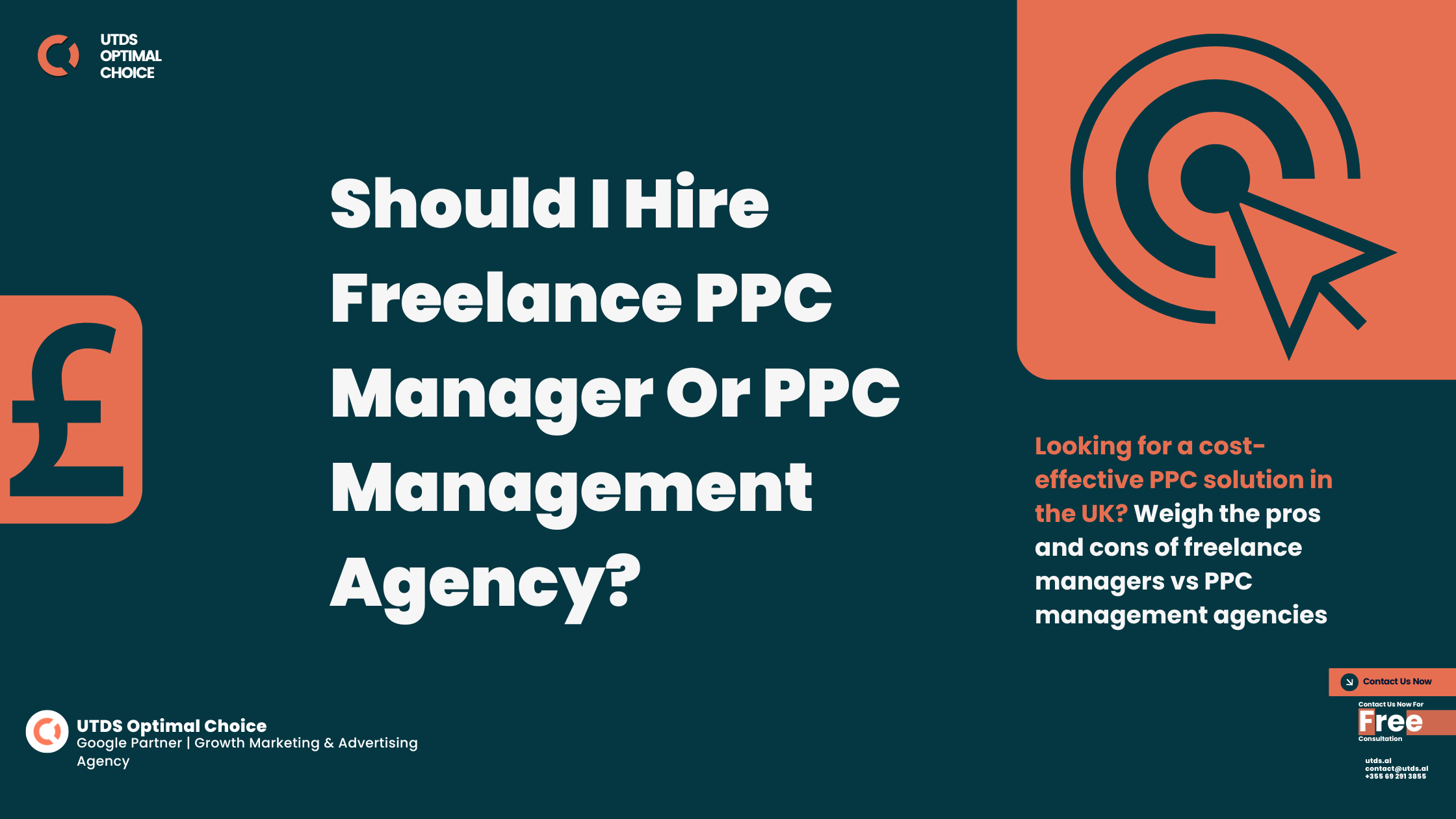Pay Per Click advertising is a powerful digital marketing strategy that allows businesses to display ads on search engines and other online platforms, paying only when users click on their ads. Especially, PPC management for small businesses in the UK has become essential to drive targeted traffic, increase brand awareness, and boost conversions.
PPC Management For Small Business
For small businesses in the UK, PPC Management is crucial to stay competitive and capturing the attention of your target audience. Here’s why:
- Immediate Results: Unlike search engine optimisation, our PPC management agency can drive instant traffic to your website.
- Targeted Reach: Connect with users actively searching for your products or services through PPC management services.
- Measurable ROI: Track and analyse performance metrics to optimise your PPC campaigns.
- Budget Control: Set your own budget and adjust spending based on performance.
- Flexibility: Quickly adapt to market changes and consumer behaviour.
We're UTDS Optimal Choice, one of the best PPC Management Agencies with clients in London, Cardiff, Liverpool, Nottingham, Manchester, and Birmingham and around Europe. Our PPC management services are tailored to meet your requirements within your budget. Want to know more? Contact us now for free consultation.
Ultimate Guide | PPC Management For Small Business
How To Set Up Your PPC Campaign
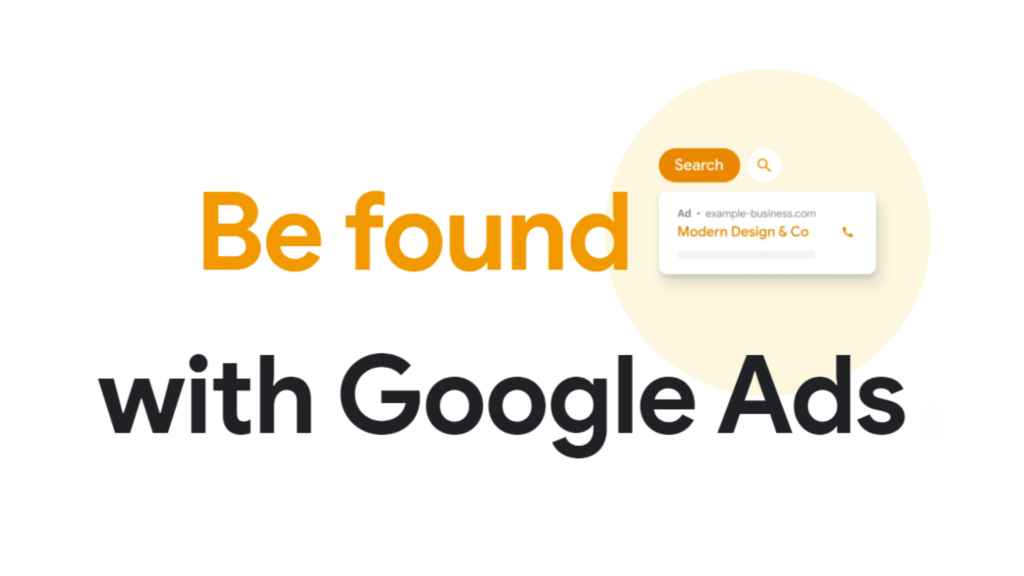
Creating a successful PPC campaign requires careful planning and execution. Follow this step-by-step guide to get started:
PPC Campaign Setup Checklist
- Create a Google Ads account with Google PPC Manager.
- Define campaign goals and budget with your PPC management services provider.
- Conduct thorough PPC keyword research
- Create compelling ad copy with the help of our professional PPC manager.
- Set up ad groups and campaigns for different UK locations like London, Cardiff, or Birmingham.
- Design effective landing pages with PPC ad management techniques.
- Implement conversion tracking with the best tools in PPC management.
- Set up billing information.
Step 1: Create Your Google Ads Account
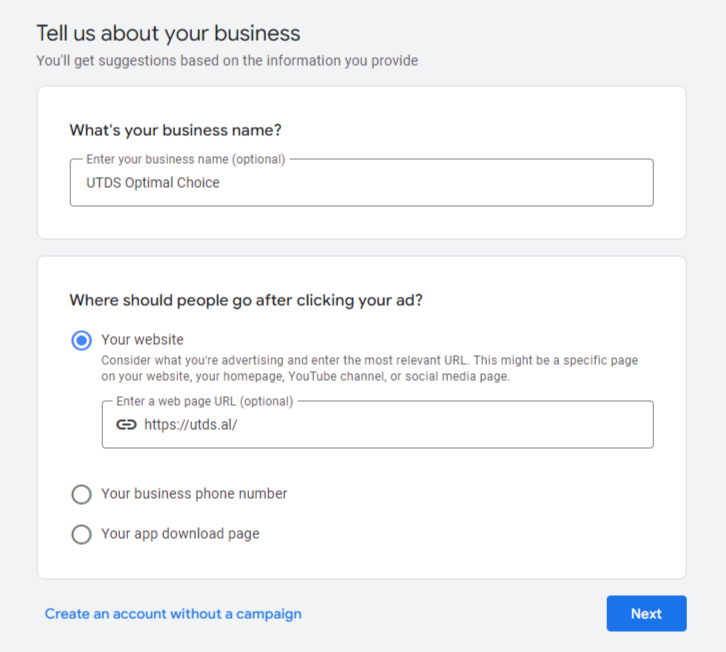
- Visit the Google Ads website and click “Start Now“.
- Follow the prompts to set up your account, providing business and billing details.
- Choose your campaign type (e.g., Search, Display, or Shopping).
PPC campaigns are great, but for targeted local dominance, consider Google Local Service Ads (LSAs). LSAs connect you with high-intent, local leads actively searching for your services. Contact our PPC Management Services for free consultation.
Step 2: Define Campaign Goals and Budget
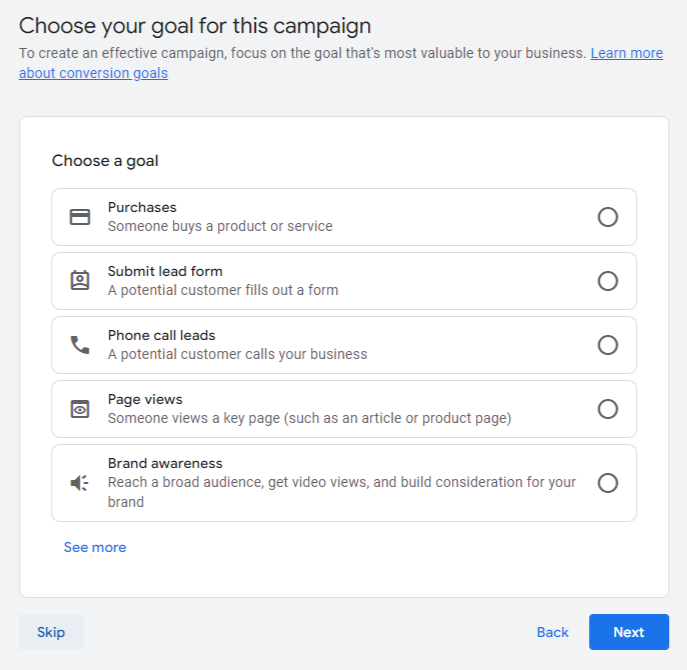
- Set clear, measurable objectives (e.g., increase website traffic by 50% in 3 months).
- Determine your daily and monthly budget based on your overall marketing spend.
- PPC management services help you stay on track by managing your budget effectively.
PPC ads grab attention, but rich snippets can turn clicks into conversions. Rich snippets provide extra info like ratings and reviews directly in search results. Learn what are rich snippets and see how to optimise your landing page to leverage their power.
Step 3: Conduct Keyword Research
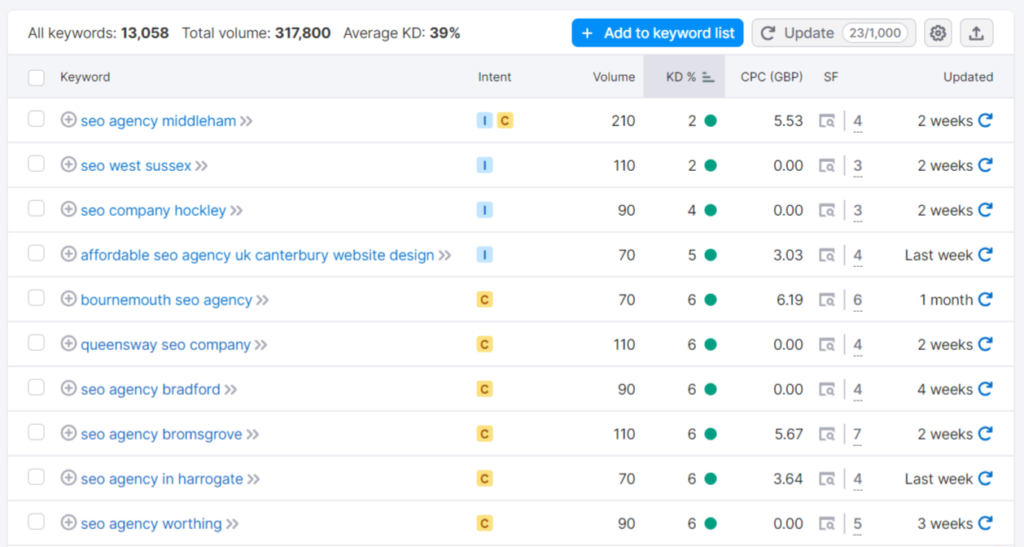
- Use tools like Google Keyword Planner, SEMrush, or Ahrefs to find relevant keywords.
- Focus on a mix of short-tail and long-tail keywords.
- Analyse search volume, competition, and estimated cost-per-click (CPC) to refine your PPC management strategy.
Step 4: Create Compelling Ad Copy
- Write attention-grabbing headlines that include your main keyword.
- Highlight unique selling points (USPs) and benefits in the description.
- Use a clear call-to-action (CTA) to encourage clicks.
- Ensure ad copy aligns with your landing page content for consistent PPC management.
PPC campaigns are powerful, but truly successful ones target users based on their search intent. Learn What is search intent marketing to craft compelling ad copy that resonates with users at every stage of their buying journey – from problem-aware to purchase-ready. The result? Higher click-through rates, more conversions, and a maximised return on your ad spend!
Step 5: Set Up Ad Groups and Campaigns
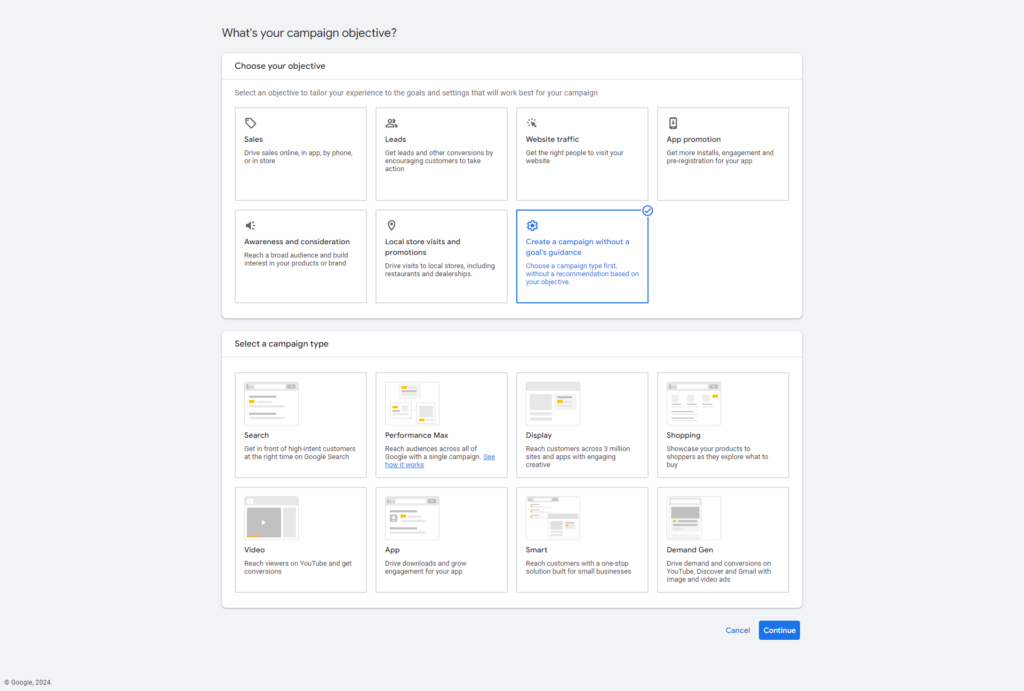
- Organise keywords into tightly themed ad groups (10-20 keywords per group).
- Create separate campaigns for different products, services, or locations, including major UK cities like London and Manchester.
- Set up location targeting, language preferences, and device targeting for precise PPC management.
Step 6: Design Effective Landing Pages
- Ensure landing page content matches your ad copy.
- Use clear headings, subheadings, and bullet points to guide visitors.
- Include a prominent CTA that aligns with your campaign goals.
- Optimise page load speed for better user experience and Quality Score.
Ensure your landing pages are mobile first web design for a seamless user experience across all devices. Mobile users convert too, so watch your clicks turn into conversions with a mobile-optimised website!
Step 7: Implement Conversion Tracking
- Set up Google Ads conversion tracking or link your Google Analytics account.
- Define conversion actions (e.g., purchases, form submissions, phone calls).
- Install tracking code on your website or use Google Tag Manager.
Ready to take your small business to the next level? At UTDS Optimal Choice, we specialise in results driven PPC management for small businesses. As a trusted local business advertising agency, we help you drive targeted traffic, increase leads, and maximise ROI. Contact us today to get started and see how we can help your business grow!
Advanced PPC Techniques
Once you’ve mastered the basics, implement these advanced strategies to take your PPC campaigns to the next level:
Audience Targeting and Segmentation
- Demographic Targeting: Tailor ads based on age, gender, household income, or parental status.
- Geographic Targeting: Focus on specific UK locations or regions like Nottingham or Birmingham.
- Behavioural Targeting: Reach users based on past online behaviour and interests.
- Remarketing: Show ads to people who have previously interacted with your website or brand.
PPC gets you noticed, but featured snippets put you at the top of search results – for free! Learn what are featured snippets and discover how to optimise your ad campaigns and landing pages
Ad Extensions
Enhance your ads with additional information:
- Sitelink Extensions: Add links to specific pages on your website.
- Callout Extensions: Highlight key features or benefits.
- Call Extensions: Display your phone number for easy contact.
- Location Extensions: Show your business address and a map.
- Price Extensions: Showcase product or service prices directly in the ad.
Automated Bidding Strategies
Leverage Google’s machine learning capabilities with PPC management techniques:
- Target CPA: Set a target cost per acquisition for lead generation.
- Target ROAS: Specify a target return on ad spend for e-commerce.
- Maximise Conversions: Optimise for the most conversions within your budget.
- Enhanced CPC: Automatically adjust manual bids to maximise conversions.
A/B Testing
Continuously test different elements to improve performance:
- Ad Copy: Test headlines, descriptions, and CTAs.
- Landing Pages: Experiment with layout, images, and content.
- Ad Formats: Compare responsive search ads vs. expanded text ads.
- Bidding Strategies: Evaluate the performance of different strategies.
Stop Wasting PPC Budget on Slow Websites! Even a stellar PPC campaign can't overcome a slow, buggy website. Understanding what is technical SEO can help you identify and fix website issues that hinder user experience and hurt conversions.
Emerging Trends in PPC
Stay ahead of the curve with these cutting-edge techniques:
- AI-Powered Optimisation
- Use machine learning algorithms to predict performance and adjust bids in real-time.
- Example: Albert.ai improves Youtube ROI by 16.3% for a leading CPG Food Marketer.
- Voice Search Optimisation
- Incorporate natural language and question-based keywords.
- Create content that answers specific voice search queries.
- Example: A UK-based home services company saw a 15% increase in leads by optimising for voice search queries like “plumber near me open now”.
- Video Ads
- Leverage YouTube and Google Video campaigns to reach a broader audience.
- Create short, engaging video content optimised for mobile viewing.
- Example: A UK fashion brand increased brand awareness by 40% using skippable in-stream video ads on YouTube.
- Visual Search
- Optimise product images for Google Lens and Pinterest visual search.
- Use high-quality, detailed images in your product listings.
- Example: A UK furniture retailer saw a 25% increase in click-through rates by optimising product images for visual search.
Looking to boost your hotel and resorts online presence? Maximise your resort's online presence with a powerful one-two punch. PPC captures immediate traffic, while SEO ensures long-term organic visibility. Learn how SEO for resorts can attract qualified leads, boost brand awareness, and convert website visitors into loyal guests.
Monitoring and Optimising Your PPC Campaigns
Regular monitoring and optimisation are crucial for PPC management. Follow this checklist to ensure you’re staying on top of your campaign performance:
PPC Optimisation Checklist
- Review key performance metrics weekly
- Analyse search terms report and update keywords
- Adjust bids based on performance data
- Refine ad copy and test new variations
- Optimise landing pages for better conversion rates
- Monitor and adjust budget allocation
- Review and update audience targeting
- Check for and address any disapproved ads
- Analyse competitor activity and adjust strategy if needed
- Stay informed about industry trends and platform updates
Key Performance Metrics to Track
- Click-Through Rate (CTR): Aim for a CTR of 2% or higher for search campaigns.
- Conversion Rate: Monitor how many clicks result in desired actions on your website.
- Cost Per Conversion: Ensure this aligns with your business goals and profitability targets.
- Quality Score: Work on improving your Quality Score to lower costs and improve ad position.
- Return on Ad Spend (ROAS): Measure the revenue generated compared to your ad spend.
- Impression Share: Understand how often your ads are shown compared to total available impressions.
While PPC drives traffic, strong Local SEO for UK businesses is essential for long-term success. Attract local customers searching for your services with targeted SEO strategies.
PPC Campaign Optimisation Strategies
- Keyword Refinement
- Regularly review your search terms report to identify new keywords and negative keywords.
- Use broad match modifier and phrase match to capture relevant long-tail keywords.
- Ad Copy Optimisation
- Update your ads based on performance data and A/B test results.
- Use dynamic keyword insertion to make ads more relevant to searchers.
- Bid Adjustments
- Adjust bids based on device, location, time of day, or audience segments.
- Implement bid modifiers for high-performing demographics or locations.
- Budget Pacing
- Monitor daily and monthly spend to ensure your budget is allocated effectively.
- Consider using shared budgets for campaigns with similar goals.
- Landing Page Optimisation
- Continuously improve your landing pages to increase conversion rates.
- Ensure landing pages are mobile friendly and load quickly.
- Audience Refinement
- Analyse audience performance and adjust targeting as needed.
- Create custom audiences based on website visitors or customer lists.
Are you a real estate agent? Want to boost your business growth? Attract qualified buyers and sellers consistently with organic traffic. Learn more about real estate SEO and see how it can work alongside PPC to maximise your online presence, generate leads, and convert website visitors into clients for the long term!
Our Case Studies
Let’s examine two of our case studies from different industries to inspire your PPC management strategies:
Case Study 1: Plumbing Company
A Plumbing and Heating Company in the UK reached out to us for website design, SEO, and PPC Management services. Their goal is to drive leads, and sales throughout the year, a goal to double during holiday seasons.
Strategies Implemented:
- We created separate campaigns for different plumbing and heating services (e.g., emergency plumber, plumber near me, drainage plumber etc..).
- We used Local Service Ads UK to target local customers who is looking for plumbing and heating services near them.
- Implemented PPC campaigns to target county level customers to drive paid traffic and increase website ranking for more organic traffic in long run.
- Utilised SEO to showcase services they offer.
Results:
- 150% increase in conversion rate
- 200% increase in ROAS
- 75% reduction in cost per conversion
Case Study 2: Electrician Company
A Electricians company in London contacted us for PPC management service to generate more qualified leads for their sales team.
Strategies Implemented:
- Focused on long-tail keywords related to specific pain points their company solves.
- Created in-depth whitepapers and case studies as lead magnets.
- Used PPC ads to target specific counties and keywords.
- Implemented lead form extensions to capture leads directly from the SERP.
Results:
- 80% increase in lead quality
- 50% reduction in cost per lead
- 25% increase in overall conversion rate
Why Should Your Hire Our PPC Management Agency
Ready to take your PPC campaigns to the next level? UTDS Optimal Choice, a leading PPC Management Agency and SEO agency, is here to help. Our team of experts specialise in creating tailored PPC management strategies that drive results for businesses across the UK, including London, Cardiff, Liverpool, Nottingham, Manchester, and Birmingham.
We pride ourselves on staying ahead of the curve, implementing cutting-edge PPC management trends and technologies to give your business a competitive edge. With our transparent reporting and data-driven approach, you’ll always know exactly how your campaigns are performing. Whether you’re new to PPC management or looking to improve existing PPC campaigns, UTDS Optimal Choice can help you achieve your advertising goals. Contact us today for a free consultation and discover how we can transform your PPC performance.
Frequently Asked Questions
How much should I budget for PPC advertising?
Your PPC budget depends on various factors, including your industry, competition, and business goals. Start with a modest budget (e.g., £500-£1000 per month) and adjust based on performance. Many businesses allocate 5-10% of their revenue to marketing, with a portion dedicated to PPC.
What's a good click-through rate (CTR) for PPC ads?
A good CTR varies by industry, but generally, a CTR of 2-5% for search ads and 0.5-1% for display ads is considered good. However, focus on improving your CTR over time rather than comparing to industry averages.
How do I improve my Quality Score?
To improve your Quality Score:
- Ensure your keywords, ad copy, and landing pages are closely aligned.
- Create tightly themed ad groups with relevant keywords.
- Improve your landing page experience and load times.
- Use ad extensions to provide more information to users.
- Continuously test and refine your ads and landing pages
Why You Shouldn't Hire Freelance PPC Management Services
Hiring a freelance PPC manager might seem like a cost-effective solution, but it often comes with significant drawbacks. Freelancers typically work alone, which limits their capacity to manage multiple campaigns simultaneously or to bring a diverse set of skills and perspectives to your projects.
They may also lack access to advanced tools and resources that an agency has, which can hinder the optimisation of your campaigns. Furthermore, freelancers might not be able to provide the level of ongoing support and strategic planning that a dedicated PPC agency can offer, potentially leading to less effective campaigns and lower returns on investment.
How Much Does PPC Management Cost?
The cost of PPC management can vary greatly depending on the scope of your campaigns, the competitiveness of your industry, and the level of expertise required. Typically, businesses can expect to pay between £500 to £5,000 per month for PPC management services. This fee often includes both the management fee paid to the PPC manager or PPC agency and the actual ad spend budget.
Some PPC management agencies might charge a percentage of your ad spend (usually around 10-20%) or a flat monthly fee, while others might offer a combination of both. It’s important to discuss pricing structures upfront to ensure you understand what you’re paying for and how it aligns with your business goals.
What is a PPC Manager?
A PPC manager is an ad professional specialising in managing pay per click advertising campaigns. They have in-depth knowledge of online advertising platforms and use their expertise to drive targeted traffic to a business’s website, increase conversions, and improve return on investment (ROI).
PPC managers are skilled in using analytics and data to make informed decisions about how to allocate ad spend, which keywords to target, and how to craft compelling ads that resonate with the target audience. Their role is crucial in ensuring that PPC campaigns are not only launched successfully but also continue to perform optimally over time.
What Does a PPC Manager Do?
A PPC manager is responsible for creating, managing, and optimising pay-per-click advertising campaigns across platforms like Google Ads, Bing Ads, and social media channels. Their tasks include:
- Keyword Research: Identifying the most relevant and cost-effective keywords to target.
- Ad Creation: Writing compelling ad copy and designing effective ad formats.
- Bid Management: Adjusting bids to maximise ROI while staying within budget.
- Performance Monitoring: Analysing metrics like click-through rates (CTR), conversion rates, and cost per conversion to measure success.
- Optimisation: Continuously tweaking ads, keywords, and bidding strategies based on performance data.
- Reporting: Providing regular updates on campaign performance and making recommendations for future improvements.
A good PPC manager not only sets up campaigns but actively works to improve them over time, ensuring your advertising budget is used as efficiently as possible.
How to Choose a PPC Management Agency
Choosing the right PPC management agency is vital to the success of your advertising campaigns. Here are some key factors to consider:
- Experience and Expertise: Look for a PPC agency with a proven track record in managing PPC campaigns. Ask for case studies or client testimonials that demonstrate their ability to achieve results.
- Transparency: Ensure the agency is transparent about its pricing structure, how it manages your ad spend, and what results you can expect. They should provide regular reports and be willing to explain their strategies in detail.
- Customisation: The PPC agency should offer tailored solutions that meet your specific business needs rather than a one-size-fits-all approach. They should take the time to understand your goals and create a strategy that aligns with them.
- Tools and Technology: A best PPC management agency in London will have access to advanced tools and technology that allow them to optimise your campaigns effectively. This includes analytics software, keyword research tools, and automation platforms.
- Communication: Effective communication is key. The PPC agency should be responsive and proactive, keeping you informed about the progress of your campaigns and any adjustments being made. Contact us now.

